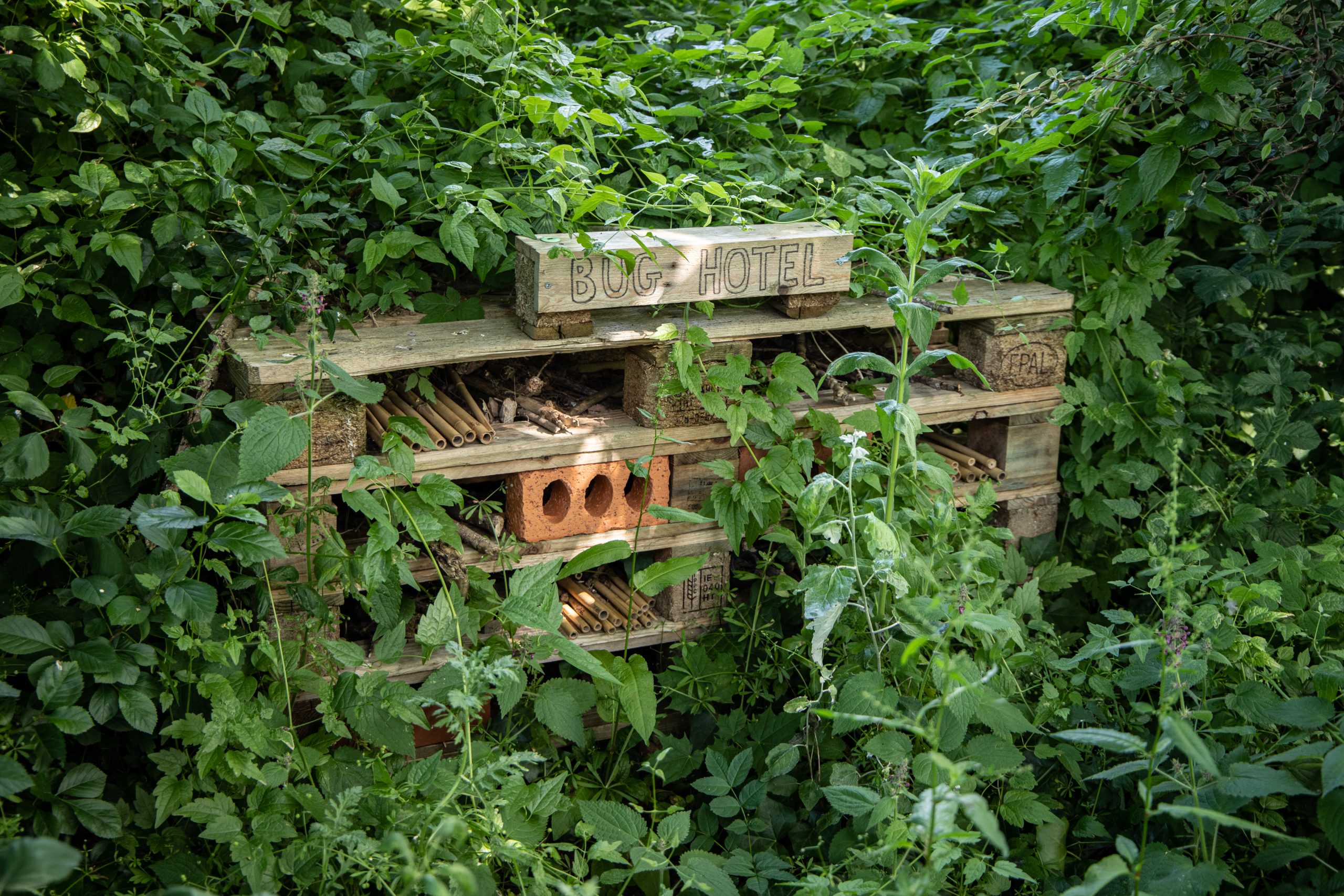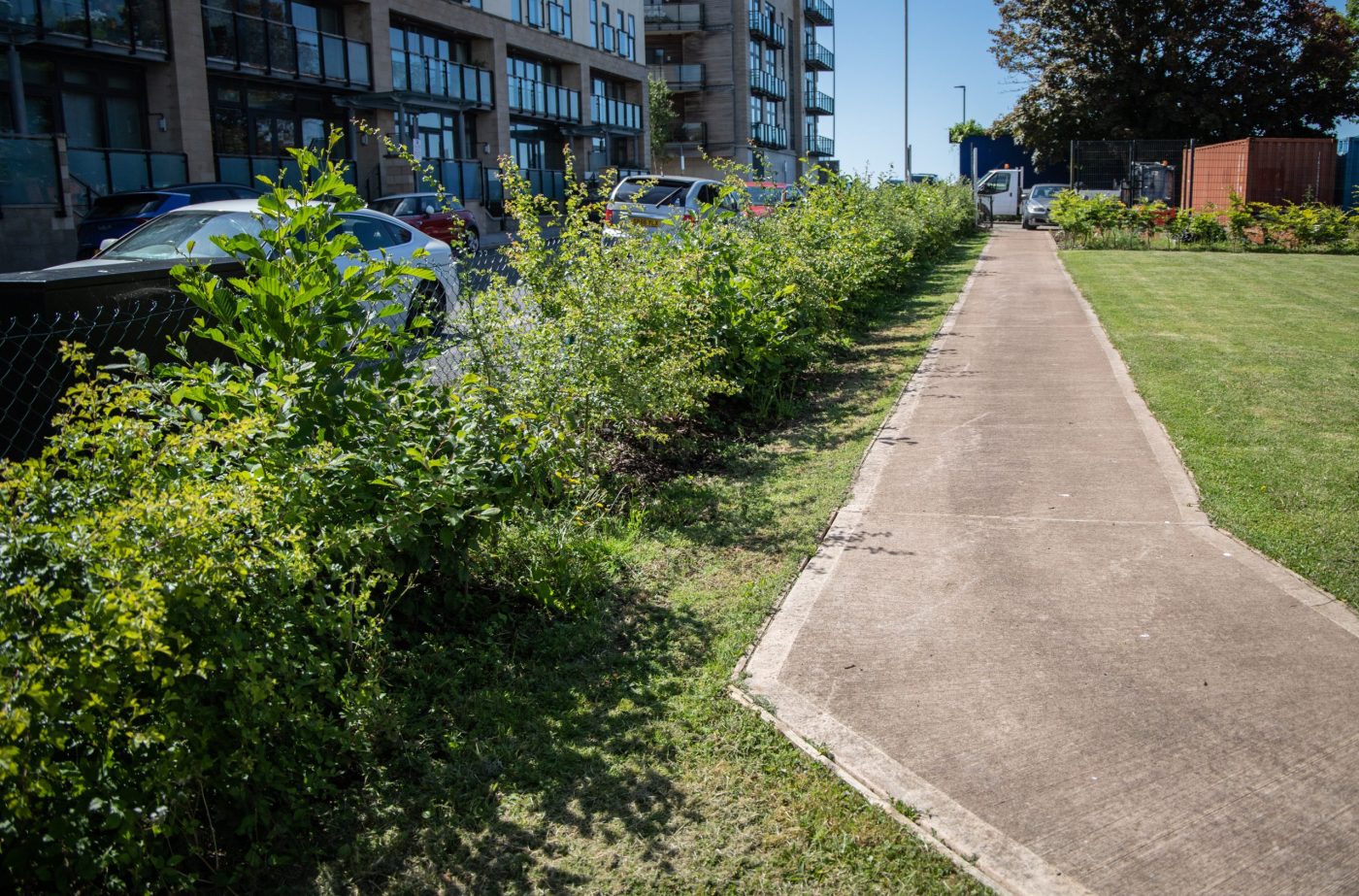
News and Media

Net-Zero Week – Biodiversity within NCEO

This Net Zero Week we want to explore the role biodiversity has to play in helping us to reach a global net-zero, and the work NCEO and our partner institutions are doing to improve biodiversity across our centre.
What is Biodiversity?
Biodiversity describes all the different life that we find within one area. It includes everything from the animals and plants to the fungi and bacteria that make up an ecosystem. Ecosystems like these, support many of the mechanisms we need to survive and it is vital then we ensure that biodiversity is protected and promoted.
Biodiversity is a key component of Net Zero Week, forming an important step in the Government’s Ten Point Plan for a Green Industrial Revolution. The plan states that protecting our environment through improving biodiversity is key to ensuring a net-zero society.
There are wider global targets to improve biodiversity, following the COP15 Biodiversity Conference in Montreal in December 2022. During the conference, nations of the world agreed to adopt four goals and 23 targets to improve global biodiversity, including protecting 30% of the Earth’s lands, oceans, coasts and inland waters by 2030. Currently 17% of the world’s land and 10% of the marine ecosystems are protected from further damage.
All our global targets to improve biodiversity link directly into the United Nations (UN) Sustainable Development Goals (SDGs), 17 global goals that aim to improve life on our planet through ending poverty, tackling inequality and the climate crisis to name a few. Goals 14 and 15 look at the biodiversity on land and in the sea through conserving, promoting and restoring global ecosystems.
Biodiversity within NCEO and NERC
Biodiversity forms an important part of NCEO’s sustainable pathway and environmental action plan. As a centre we are working to understand the current levels of biodiversity across our estates and partner sites and take action to improve the biodiversity in these areas.
Our work with biodiversity is supported by our funders the Natural Environment Research Council (NERC) and UK Research and Innovation (UKRI) who place enhancing the natural environment and protecting biodiversity under one of their key pillars within their Responsible Business Statement.
Biodiversity Projects across NCEO
At centres across NCEO we are working with our host institutions to implement biodiversity initiatives in a bid to improve the biodiversity at all NCEO sites.
One of the big successes has been the biodiversity projects in place at NCEO partner institution Plymouth Marine Laboratory (PML), of which many were funded by NCEO and overseen by NCEO staff members.
These projects included the planting of native trees around the perimeter and replanting the sites lawn with wildflowers native to Plymouth. Other initiatives have included the installation of bug hotels, hedgehog houses and bird houses all made from upcycled materials.
All the biodiversity initiatives at PML feed into their five-year Biodiversity Action plan which aims to promote and protect the native species on site.
Biodiversity improvements have also taken place at NCEO’s headquarters of Space Park Leicester (SPL). Through funding granted by NERC, NCEO assisted SPL in their re-planting schemes across the site. This included woodland maintenance of an area which boarders the site, installation of bat and bird boxes, hedgehog houses and wildflower planting.
These schemes formed part of a wider native planting project working with Leicester City Council and the University of Leicester, providing scope for future biodiversity projects ongoing on site.

Biodiversity improvements have also taken place at NCEO’s headquarters of Space Park Leicester (SPL). Through funding granted by NERC, NCEO assisted SPL in their re-planting schemes across the site. This included woodland maintenance of an area which boarders the site, installation of bat and bird boxes, hedgehog houses and wildflower planting.
These schemes formed part of a wider native planting project working with Leicester City Council and the University of Leicester, providing scope for future biodiversity projects ongoing on site.
Latest News and Events





